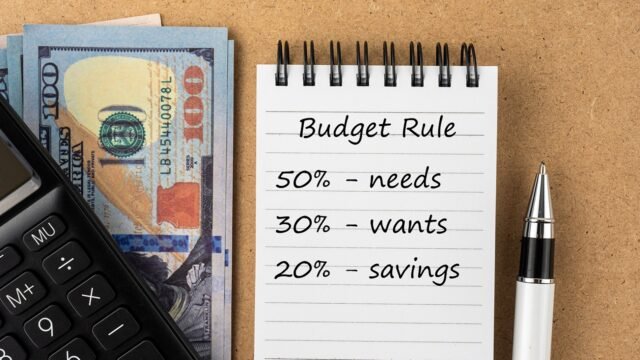Creating a budget is often easier said than done. You meticulously plan your spending, only to find yourself derailed by unexpected expenses or impulsive purchases. But don’t worry, sticking to a budget is achievable with the right strategies. This article will provide ten practical tips to help you regain control of your finances and achieve your financial goals.
Emergency Fund
Life is full of surprises, and not all of them are pleasant. Unexpected medical bills, car repairs, or unforeseen tax liabilities can quickly throw your carefully crafted budget off track.
A robust emergency fund acts as a financial safety net, providing a buffer to absorb these unexpected costs without relying on credit cards. Aim to save a few thousand dollars to cover potential emergencies. Remember, this fund is strictly for genuine emergencies, not for impulse buys or non-essential desires.
Clear Savings Goal
Having a compelling savings goal can significantly boost your commitment to your budget. When your budget becomes a tool to achieve a long-desired dream, staying within its boundaries becomes more appealing. Define your savings goal with specificity.
Instead of a vague objective like “saving for a down payment,” set a concrete target such as “setting aside £300 every month for the next three years”. This clarity facilitates better budget allocation and fuels motivation.
Budget Based on Your Spending Habits
One of the fastest ways to sabotage your budget is by setting unrealistic spending limits. Creating a realistic budget involves acknowledging your actual spending patterns rather than imposing impractical restrictions.
Begin by listing your fixed monthly expenses, such as mortgage or rent payments, utility bills, insurance premiums, and your defined savings contributions. Subsequently, factor in variable expenses that fluctuate monthly, like groceries and entertainment. Analyse your bank statements from recent months to determine an average for these variable costs.
Track Your Spending
It may seem obvious, but diligently tracking your spending is crucial for budget adherence. Even small, seemingly insignificant expenses can accumulate over time and derail your financial plan.
Leverage technology to your advantage; numerous apps and online banking tools are available to track your daily expenditures. This practice illuminates spending patterns you might not be consciously aware of, revealing areas where you can potentially cut back.
Power of Delayed Gratification
Sticking to a budget often involves making sacrifices in the present to secure a more financially stable future. Resisting impulsive purchases and delaying gratification can be challenging, but it’s a cornerstone of successful budgeting.
Prioritise your financial goals over immediate desires, understanding that the long-term benefits outweigh the temporary satisfaction of impulsive spending.
Reward Yourself
While sacrifice is essential, an overly restrictive budget can lead to feelings of deprivation and eventual rebellion. Integrate rewards into your budget to celebrate milestones and maintain motivation.
Allocate a reasonable amount for “fun money” or guilt free spending on things you enjoy. This approach fosters a healthier relationship with your budget, making it feel less like a punishment and more like a roadmap to financial well-being.
Automate Your Finances for Effortless Budgeting
Take advantage of technology to automate your finances, particularly for fixed expenses like mortgage or rent payments. Setting up automatic withdrawals ensures timely bill payments and reduces the risk of missed deadlines or late fees. This automation instils financial discipline and guarantees that essential expenses are prioritised.
Combat Impulse Purchases with the 24 Hour Rule
Even the most disciplined budgeters encounter tempting purchases. When faced with such a dilemma, implement the 24-hour rule. Instead of immediately giving in to the urge to buy, give yourself a full day to contemplate the purchase. This cooling-off period allows you to assess whether it’s a genuine need or a fleeting desire, promoting more mindful spending habits.
Reframe Your Perspective on Spending
If you’re struggling to resist an impulse buy, shift your perspective on the item’s cost. Instead of viewing it solely in terms of monetary value, calculate how many hours of work it represents.
For example, if a tempting item costs £50 and you earn £10 per hour, ask yourself if it’s worth five hours of your time and effort. This mental exercise can provide clarity and help you make more rational spending decisions.
ALSO READ: Land vs. Unit Trust vs. Treasury Bond: What’s The Best Long Term Investment?
Sticking to a budget requires effort and discipline, but the rewards are well worth it. By implementing these ten practical tips, you can transform your budget from a source of frustration into a tool for financial empowerment. Remember, consistency is key; even small steps taken consistently can lead to significant financial progress over time.








